How to nurture your microbiome
Probiotics are generally classed as food rather than medicine, which means they don’t go through the rigorous testing medicines do, falling into a weird space the governments don’t quite know how to regulate.
Without concrete evidence of which microbes are beneficial, in what amount or even which mixture out of thousands upon thousands of microbes will be the right fit for you as this study found out, we take the approach of helping your microbiome be the best it can by doing this:
1. pH Balancing
The skin’s pH value is one of the major contributors to acne and other immune response skin problems such as eczema and dermatitis.
Helping to maintain the strength and cohesiveness of the skin, an acid skin pH (4-4.5) keeps the resident bacterial flora (‘good bacteria’) attached to the skin, whereas an alkaline pH (8-9) promotes their dispersal from the skin and leads to pathogenic bacterial, fungal growth and long term immune system malfunction and allergy problems.
Our entire range of award winning skincare products are pH balanced to optimise biodiversity on your skin.
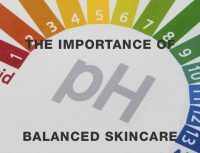 THE IMPORTANCE OF PH BALANCED SKINCARE
THE IMPORTANCE OF PH BALANCED SKINCARE
Do you know if your skincare products are pH balanced? It’s worth investigating, because if they’re too acidic or too alkaline, you’re setting yourself up for a host of potential skin issues, read more here…
2. Gentle Preservation
Where there is water, there is life, that is a universal truth. While we encourage diversity in our microbiomes, the one place you don’t want a thriving community of microbes, is in your skincare products. While absolutely necessary, preservatives cannot differentiate between a mammalian cell such as ours, beneficial microbes and unwanted microbial cells. It will attack all cells equally.
While some preservatives can be re-used numerous times such as Formaldehyde donors, the downside is these multi-action preservatives is the strength at time of manufacture, to the time of use, are the same. When you apply these preservatives to your skin, it will go straight back to work there too.
The preservative we use cause the microbes to die by steadily supplying the microbe with electrolytes, reducing the pH inside the cell. The microbe tries to counter this by expelling protons, this process consumes energy. Eventually the microbe is no longer able to expend energy or supply protons to counter the electrolytes, which kills the microbe.
It’s this unique property which is magnitudes safer for use on the skin than other commonly used preservatives, with the preservative itself being fully bio-degradable, meeting OECD criteria, minimising risk to your microbiome.
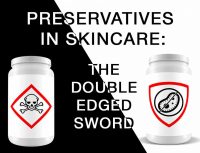 PRESERVATIVES: THE DOUBLE EDGED SWORD
PRESERVATIVES: THE DOUBLE EDGED SWORD
With microbes are all around us, everywhere on us and even inside us, preservatives are necessary. You could be sitting alone and have around 10 trillion microbes calling yourself home! Read more here…
3. Concentrated Botanical Extracts
Plants are equipped with potent antioxidants, phyto-acids, oleic compounds, and reactive by-products that have been shown to have positive effects on human skin by not only strengthening the skin barrier but also possibly promoting microbe diversity.
The microbiome of the gut and skin have recently been shown to have a strong connection through the host immune system. Given the important relationship between the skin and gut microbiome and the noted impact of plant-based diets on gut health, there has been speculation that plant-based topicals in skincare may also act as a healthy source of nutrients for the skin microbiome and perhaps overall health.
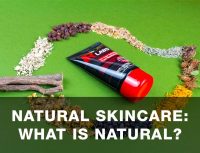 NATURAL SKINCARE: WHAT IS NATURAL?
NATURAL SKINCARE: WHAT IS NATURAL?
The word “natural” is used a lot in the green beauty movement. But what does it really mean? “Natural” is a word that’s often thrown about without any context into how it is interpreted but what does it actually mean? Read more here…
4. Non-ionic Cleansers
Whether you live in a highly polluted environment making your skin feel as if it has a thick layer of grime or it’s just the daily build-up of dead skin cells & grease on your skin, our skin can do with a good cleanse.
Ionic cleansers such as Sodium Lauryl Sulfates & Cocamidopropyl Betaine among others, are considered biologically “harsh” detergents because they typically bind to & modify protein structures and for this purpose is often used in laboratories to cause skin inflammation. That is, to say in a more generic term, your skin barrier is broken down.
Your skin is the first line of defence against the outside world especially against the harmful microbes. Any damage to your skin barrier leaves it vulnerable to infection from microbes which are forever looking to exploit any weakness.
The answer is not to stop cleansing as all that grime, grease & dead skin cells will cause issues for our skin anyway. The answer is to cleanse smartly as non-ionic cleansers do not separate those crucial protein-protein bonds, giving our skin the ability to retain its native structure and functionality reducing the chance of irritation and premature skin ageing.
It’s for that reason we only use non-ionic cleansers in our entire skincare range.
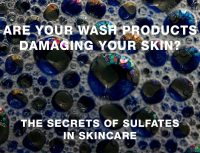 THE SECRETS OF SULFATES IN SKINCARE
THE SECRETS OF SULFATES IN SKINCARE
We’ve spent a staggering £1.5 billion on shampoos, conditioners, bath and shower products in the UK last year. With eczema and dermatitis cases rising, what is the real cost of using Sulfates to clean our skin? Read more here…
R10 Labs is NOT a Probiotic!
Creating a healthy skin microbiome is a prerequisite function built right into the core function of our skincare range. R10 Labs skincare increases your skin’s natural biodiversity by creating an environment that takes the skin back to its natural state rather than Blindly applying probiotics on the skin that can actually reduce the diversity, and skin health.
The science in skincare is our ongoing series helping consumers better understand the science in skincare. We translate the science into a format that is much easier to read, bust the myths and give you a clear, transparent and honest assessment so you can make an informed choice of what goes onto your skin.
Be the first to hear about our new articles by signing up to our email newsletters or by following us on Facebook or Twitter

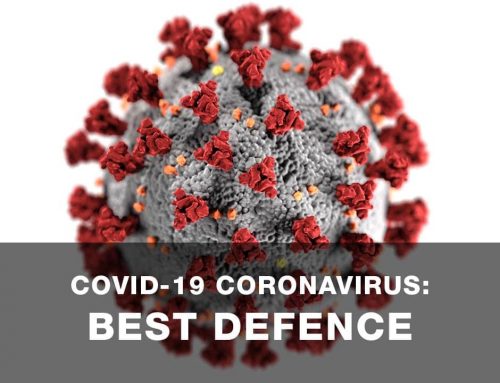


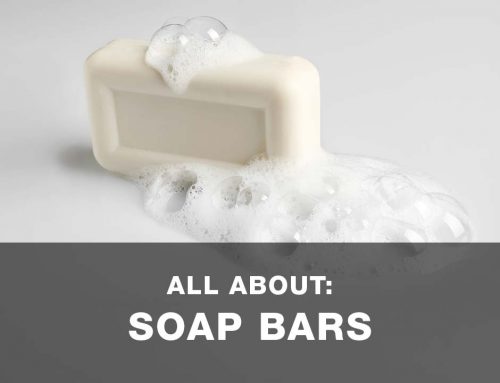
Leave A Comment